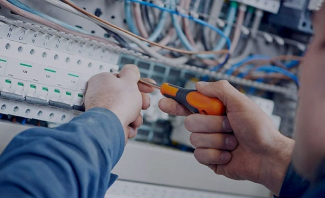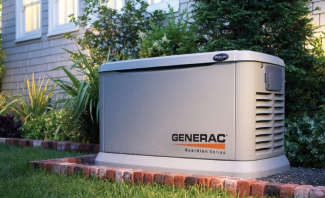How to Troubleshoot Common Home Generator Issues and Make Repair Yourself
Do you ever find yourself dealing with unexpected home generator failures? It can be a challenging and costly issue to face, but luckily there are solutions! With the right information and guidance, it’s possible to troubleshoot common home generator issues and make repairs yourself. This blog post is designed to give homeowners the knowledge and strategies they need for taking care of their home generators effectively without having to rely on professional help. Discover essential insights into how these problems might arise in the first place – as well as easy steps to take in order to address them quickly and safely.
Familiarize yourself with basic safety precautions when working on a home generator

When it comes to working with a home generator, safety should always be your top priority. There are several basic precautions you should take in order to minimize the risk of injury or damage. First and foremost, make sure the generator is turned off before you begin any work. It’s also important to wear protective gear such as gloves and glasses when handling fuel or working on electrical components. Additionally, be aware of the generator’s exhaust system and make sure it’s properly ventilated to avoid carbon monoxide poisoning. By familiarizing yourself with these simple safety measures, you can help ensure that working on your home generator is as safe as possible.
Understand the different components of an engine and how they work together
To effectively troubleshoot and repair your home generator, it’s important to have a basic understanding of the different components of the engine and how they work together. The engine is composed of various parts, including the spark plugs, carburetor, fuel filter, air filter, oil filter, and more. If any of these parts malfunction or fail, it can impact the performance of the generator. Learn how to identify each component and its function, so you can pinpoint the source of any issues with your generator. Understanding how these parts work together to generate power can also help you prevent future problems from arising.
Diagnose common problems such as low fuel, spark plug issues, and electrical malfunctions
Home generators are convenient sources of power that can keep your home running during outages. However, like any electronic device, they can encounter problems that may affect their performance. Some common problems that you may encounter with your home generator include low fuel, spark plug issues, and electrical malfunctions. If you’re unsure how to troubleshoot and diagnose these problems, it’s important to consult the user manual or contact a technician for assistance. By addressing these issues promptly, you can ensure that your home generator continues to function effectively and provide you with the peace of mind you need during emergencies.
How to check fluid levels and replenish or refill them if necessary

Checking the fluid levels of your home generator is an important step that should be performed regularly to avoid issues down the road. These fluids, including oil and coolant, are necessary to keep the engine running smoothly and prevent damage from overheating. To check the fluid levels, consult your user manual to locate the appropriate dipsticks or other indicators. Make sure to replenish or refill the fluids as needed, following the manufacturer’s recommendations for the appropriate type and amount. It’s also essential to properly dispose of any used fluids in a safe and environmentally friendly manner. By staying on top of these basic maintenance tasks, you can ensure that your home generator is always ready when you need it.
Identify and address potential air leaks in your fuel system
Air leaks in the fuel system of a home generator can lead to problems with the engine, such as poor performance or failure to start. To identify and address these leaks, start by inspecting the fuel lines for any cracks or damage. If you find any issues, replace the damaged parts immediately. You can also try tightening any loose connections, which may be causing the air leaks. Another solution is to use a fuel system cleaner, which can help remove any debris that may be causing blockages in the fuel system. By addressing air leaks promptly, you can help ensure that your home generator functions effectively and efficiently. Remember, when in doubt, always consult the user manual or a technician for help with repairs.
https://www.google.com/maps?cid=3969260459347426251
